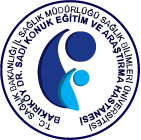ABSTRACT
Objective:
Iatrogenic bile duct injuries may occur during the hepatopancreaticobiliary surgery, gastroduodenal surgery and cholesystectomy. We aimed to evaluate the diagnosis and the treatment of our patients who developed bile duct injuries through such surgical interventions.
Materials And Methods:
The patients treated for iatrogenic bile duct injury in Bakırköy Dr. Sadi Konuk Training and Research Hospital General Surgery Clinics between January 2005 and January 2012 were retrospectively evaluated in terms of demographics, the causes of the injury, time of diagnosis, clinical and laboratory findings, types of bile duct injuries according to Strasberg classification, diagnostic tools, treatment methods, length of hospital stay, morbidity and mortality rates.
Results:
Of 42 cases, 21 were female, with a mean age of 52.9 (24-81). Thirty eight of these injuries occurred due to cholecystectomy (90.4%). Twenty five of these 42 cases were Strasberg Type A injuries (59.5%). In 35 patients iatrogenic bile duct injury was detected after the surgery. Abdominal ultrasonography was used as the first-line diagnostic tool and endoscopic retrograde cholangiopancreaticography which was performed by the surgical team was used as a method for definitive diagnosis. Of the subjects who were diagnosed with this injury, 10 were surgically treated (23.8%). The remaining 32 suitable patients for non-surgical methods were treated by endoscopic retrograde cholangiopancreatography and percutaneous transhepatic cholangiography (76.2%).
Conclusion:
Iatrogenic bile duct injury is a surgical complication that may usually develop after the upper gastrointestinal surgery and that may be diagnosed in the later stage of the post-operative period. This condition can be treated non-surgically in appropriate cases with endoscopic and percutaneous transhepatic methods as well as surgical interventions.



